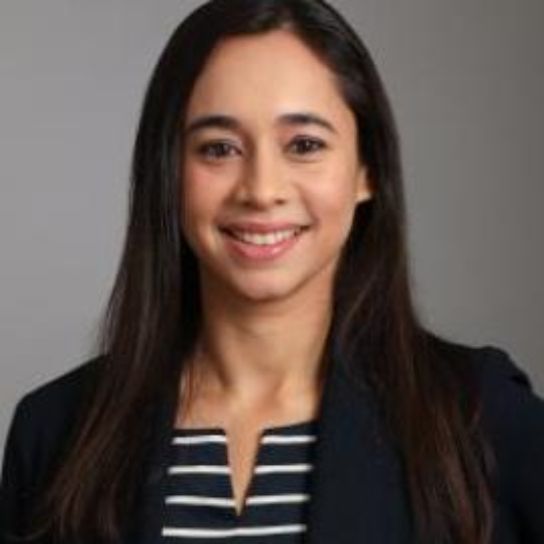Quenie Hubert, an associate in the HSF Frankfurt office from 2017 to 2021, is now an ADHD coach. She describes the challenges, as well as the advantages, she has faced as someone with ADHD and offers advice to others in the workplace.
Eight years ago, when I first started working as a first-year associate in HSF’s Frankfurt office, I was diagnosed with the combined type of ADHD (inattentive and hyperactive). Because of the general stigma around this topic, I was not courageous enough to share this with my co-workers.
So began a journey of self-discovery, healing and self-acceptance. I had to look inwards and take a close look at how my ADHD affected my life since my earliest days. I realised that compensating and hiding had taken an enormous amount of energy and happiness. I also realised that my beautiful, creative ADHD brain had been a source of strength my entire life. These lessons were so close to my heart that I wanted to pass them on to people who were still losing energy by masking. I have since then trained as a psychological counselor and an ADHD-Coach.
I learnt that neither neurotypical nor neurodiverse brains are better or worse. They are just different “brain-operating systems”. But the biggest lesson was that I am enough and not “too much”. Self-awareness and self-acceptance are the key to using ADHD as a strength.
Inattentive, but open mind
There is constant audio commentary in my head. The comments can, for example, be the recital of the entire lyrics of the song “I’m Still Standing” by Elton John - just because someone said the word “standing”. It’s like having a party in your head and then someone asks you: What did the person in the left corner of the room say? When I look at a tree, I have thousands of thoughts, feelings and association - a flood of data that needs sorting.
This led to quite a few challenges when I was working as an associate: frequent mistakes like typos or a word missing, even though I had read the document 10 times accompanied by the fear of someone calling me lazy or careless. I had difficulties remembering verbal instructions, which is why I still write everything down. I often had to deal with disgruntled co-workers because they thought I didn't listen or was purposefully ignoring them.
There were times when I was waiting for half an hour in front of the office because I had yet again forgotten my key-card and was too ashamed to admit it. I would then just wait for a co-worker to let me in and pretend I had just arrived: “Oh what a nice coincidence!” I would say to cover my embarrassment.
Nonetheless, there are definite strengths of having an open mind and processing unfiltered flood of data. I have a lot more information than the average person. This leads to creativity, versatile thinking, a wealth of ideas and access to solutions that others cannot see. I can drive innovation. I react flexibly to changing requirements and it’s easy for me to see and put together the “big picture”. I have strong empathy due to the lack of stimulus filtering. To compensate for my lack of attention, I have developed strong perception and extrapolation skills.

This leads to creativity, versatile thinking, a wealth of ideas and access to solutions that others cannot see.
Restless but endless energy
As an adult, hyperactivity for me manifests primarily as inner restlessness. A feeling of being driven has been with me all my life, which won’t leave me alone even when I am trying to rest. When I have no more energy left to suppress my restlessness, it also manifests physically. You can see me constantly bobbing my knee, singing loudly, drumming my fingers or changing my posture. I often struggle to not interrupt people and usually end their sentences, but that is also because I often feel as if I will forget what I wanted to say if I wait too long.
But my hyperactivity also shows up as a great strength, especially in the workplace: contagious enthusiasm and above-average motivation. This can contribute to a positive team dynamic. I was often appreciated by bringing new perspectives. My boundless energy also showed during times of hyperfocus, when the memo needed to be finished and I had no problem working long hours – which others definitely appreciated!
One of the first things I learnt as an ADHD coach is that every ADHD brain is unique and ADHD reality is different for everyone. I have made it my mission to combat the stigma around ADHD. These empathy bridges are important to get rid of the “better” or “worse” categories.
In my coaching practice, working on self-awareness and learning about the strengths and personal weaknesses of the ADHD brain brings a lot of comfort to my clients. Many of my clients struggle with self-worth and have developed negative coping strategies to mask their symptoms. Together, we unravel this ADHD “mess”, focusing on the 5 Ss: self-awareness (i.e. understanding the ADHD brain), self-acceptance, self-empathy, self-management and self-confidence.
While ADHD-brains have plenty of strengths, society is still far from seeing and promoting them. More and more people are being diagnosed and this has consequences. Many of them spend a lot of time masking their perceived negative symptoms and are more frequently affected by mental illnesses such as burnout, anxiety, obsessive-compulsive disorders and depression than the average person. The risk of suicide is five times higher among ADHD-ers compared to the average person.
For employers, including laws firms, managers and co-workers the right response is to foster a workplace where people feel secure enough to be themselves. Support them and give them psychological safety so that they are able put into reality what Oscar Wilde summarised as: “Be yourself, everyone else is already taken.”
*Banner artwork has been produced especially for Herbert Smith Freehills' neurodiversity initiative by Noah Buyukertas who is autistic and has ADHD. In Noah's words: "Following on from my artwork in "Infinite Possibilities - Living and Working with Autism", this painting attempts to capture the complexity and diversity of the neurodivergent experience, as well as the range of thought and ideas present in a neurodiverse workforce." Noah Buyukertas (they/them)
Key contacts

Kym Somers
Alumni Manager, London

Olivia Troop
Alumni Executive, London
Are you an alumni of Herbert Smith Freehills and want register?
Are you already registered but need to update your contact details?
Legal Notice
The contents of this publication are for reference purposes only and may not be current as at the date of accessing this publication. They do not constitute legal advice and should not be relied upon as such. Specific legal advice about your specific circumstances should always be sought separately before taking any action based on this publication.
© Herbert Smith Freehills 2024
Stay in the know
We’ll send you the latest insights and briefings tailored to your needs

